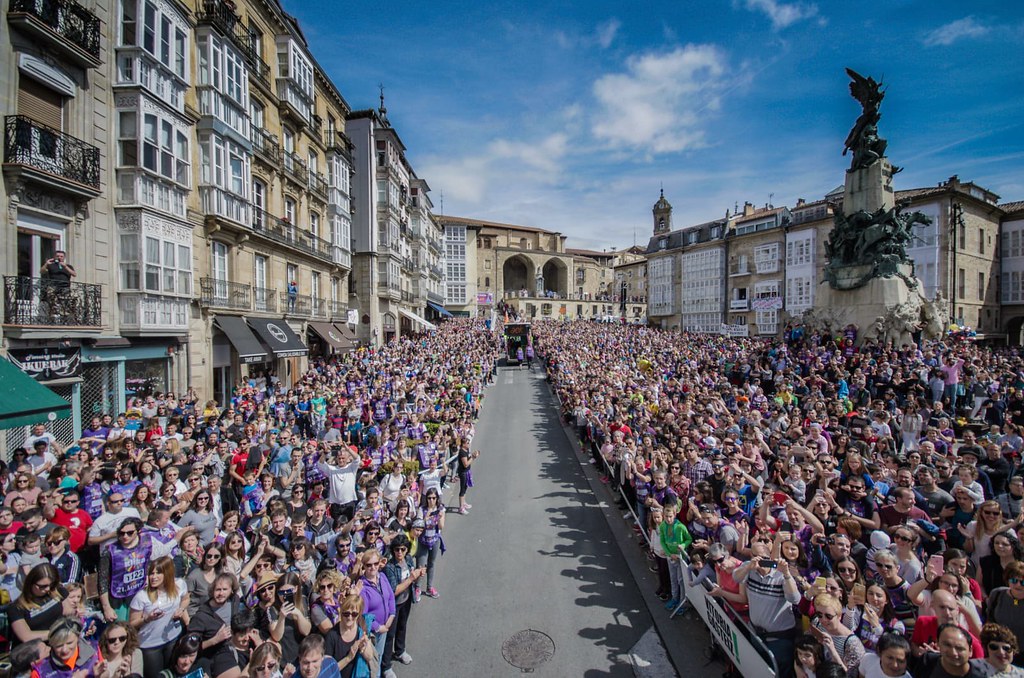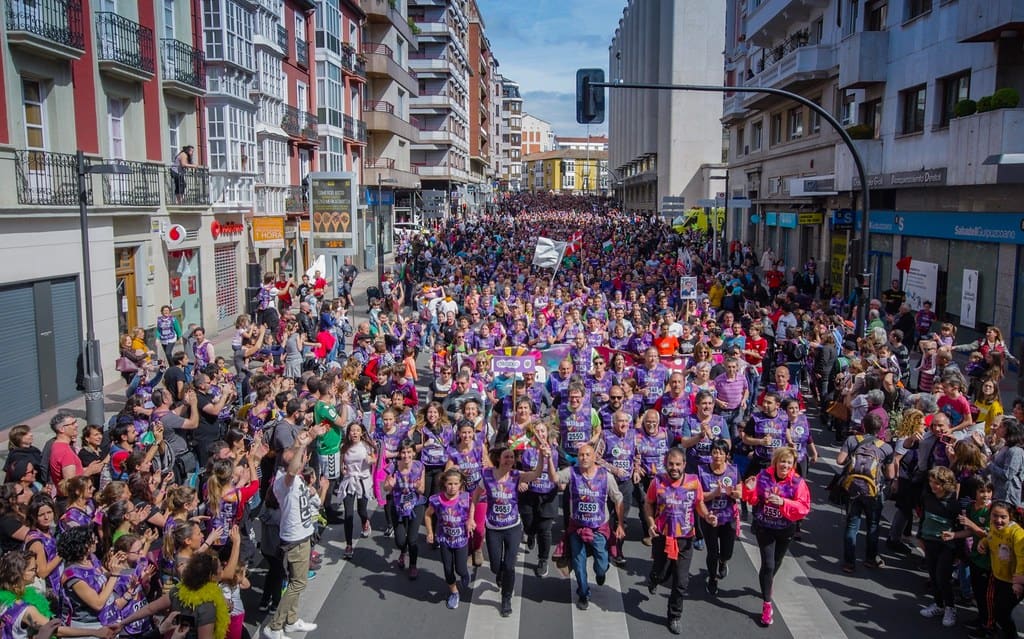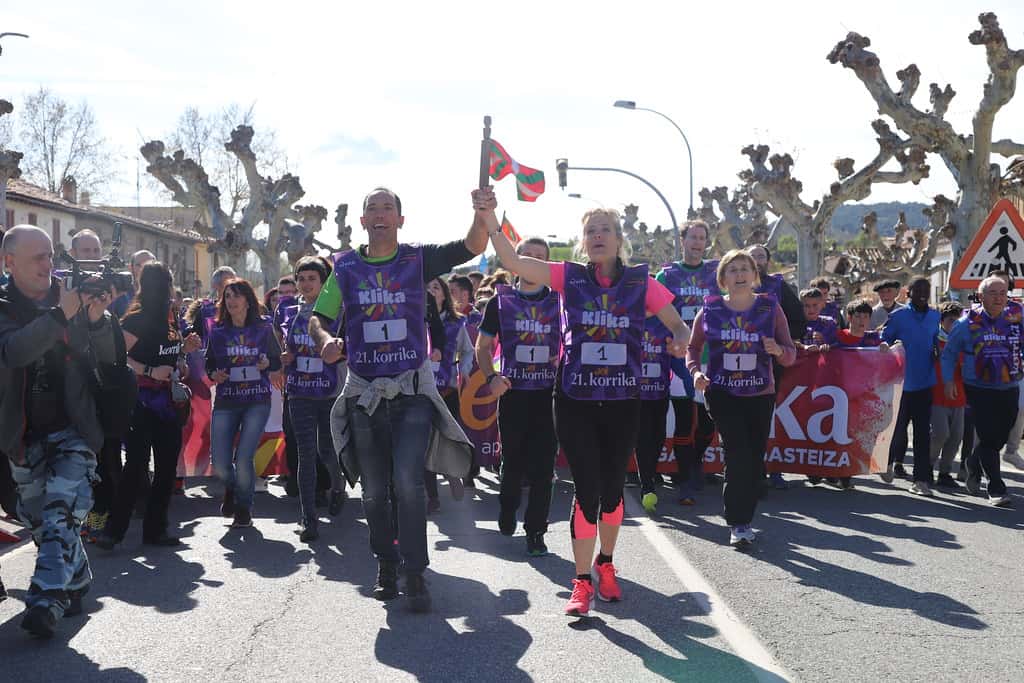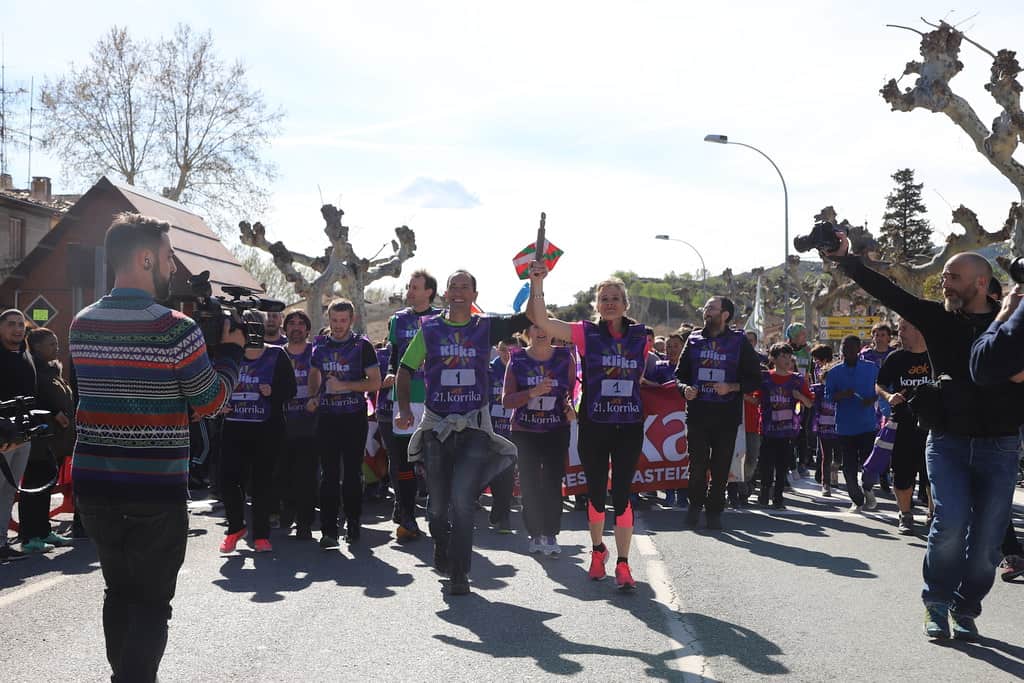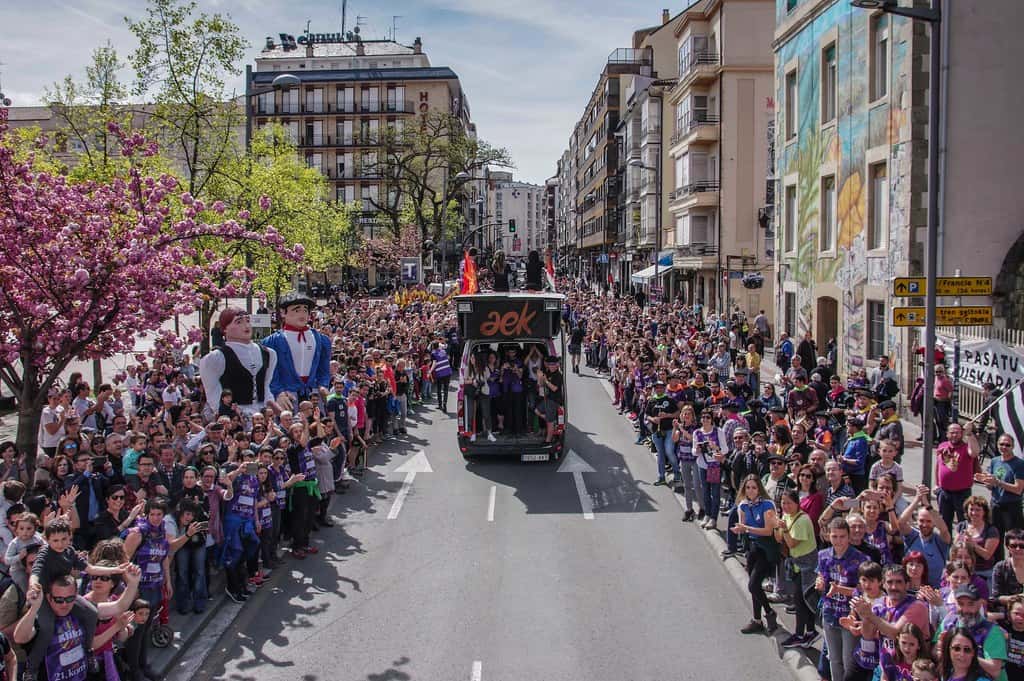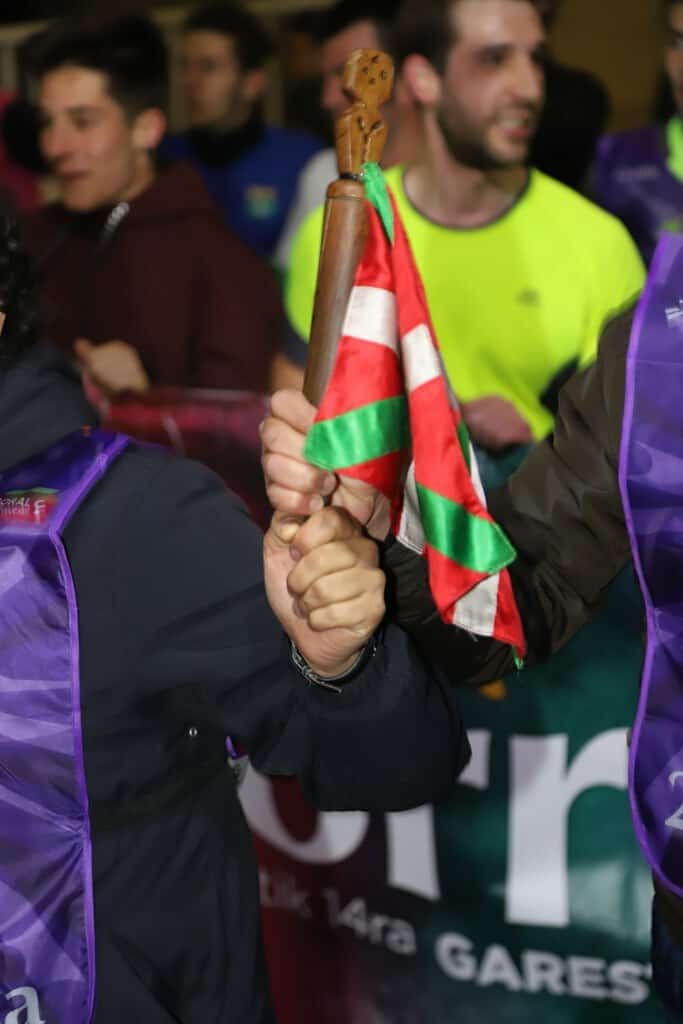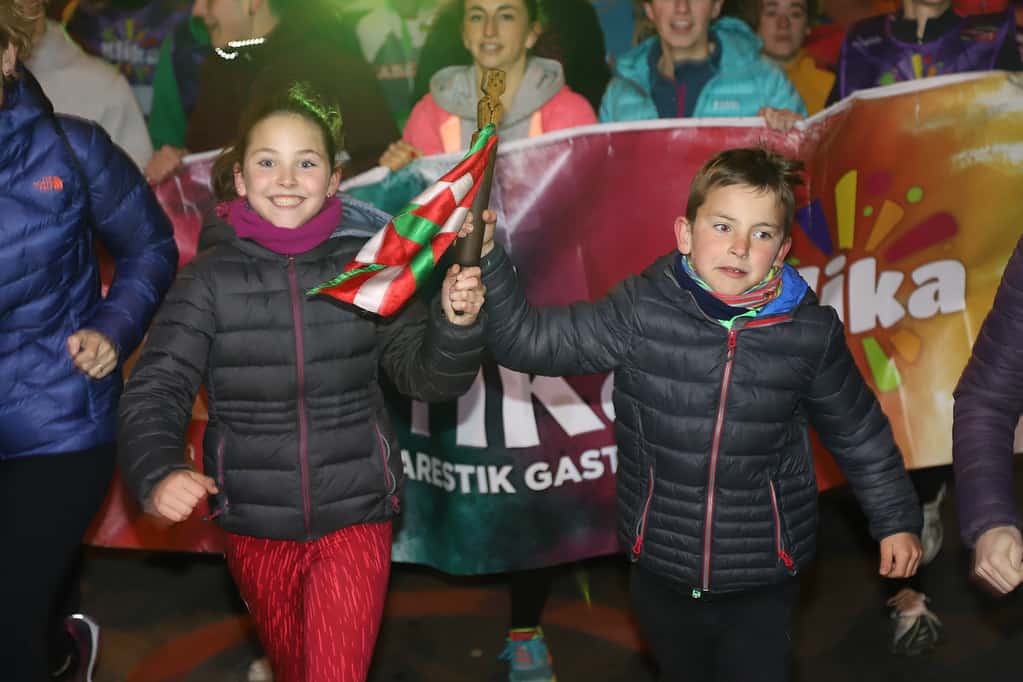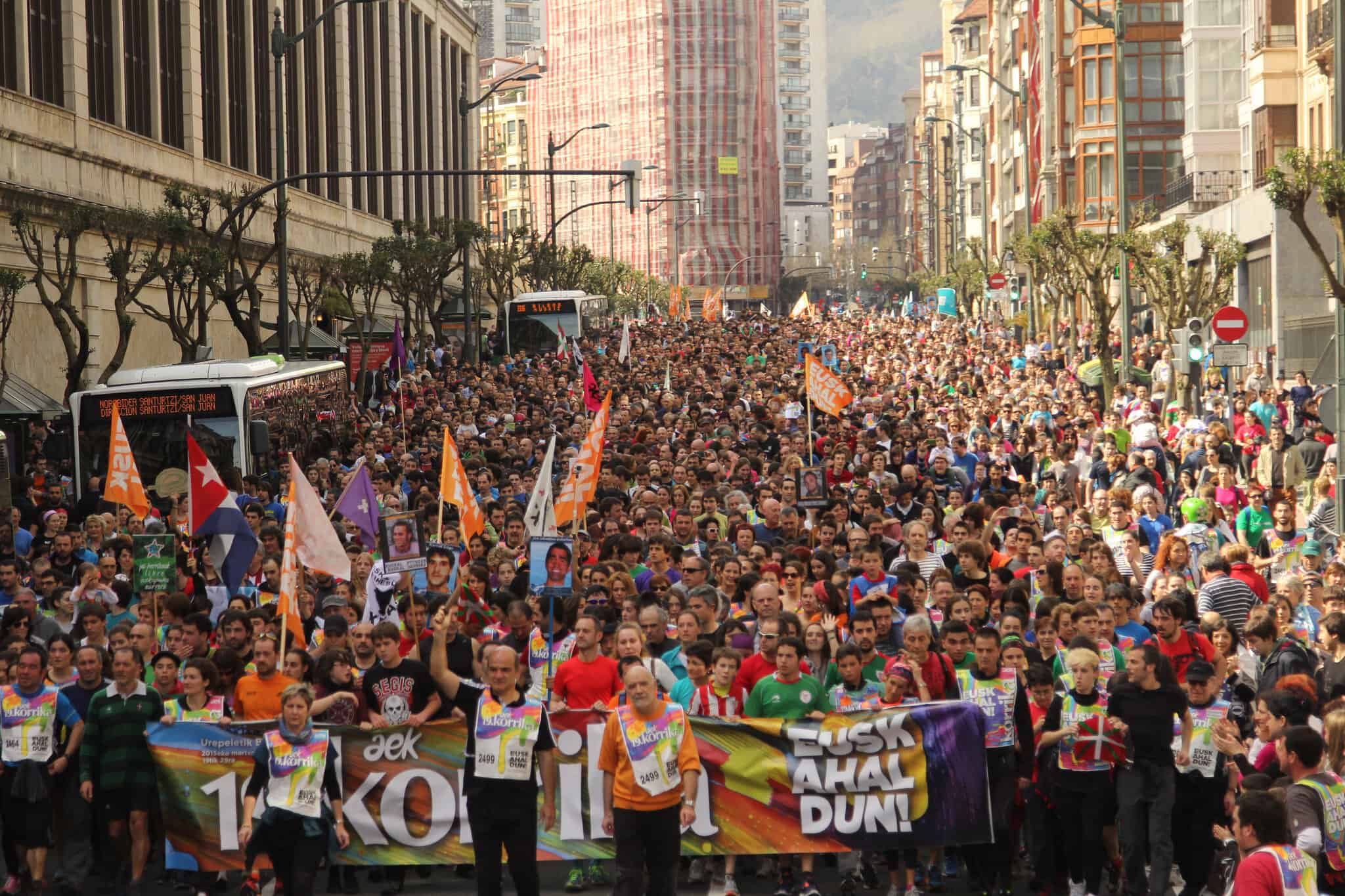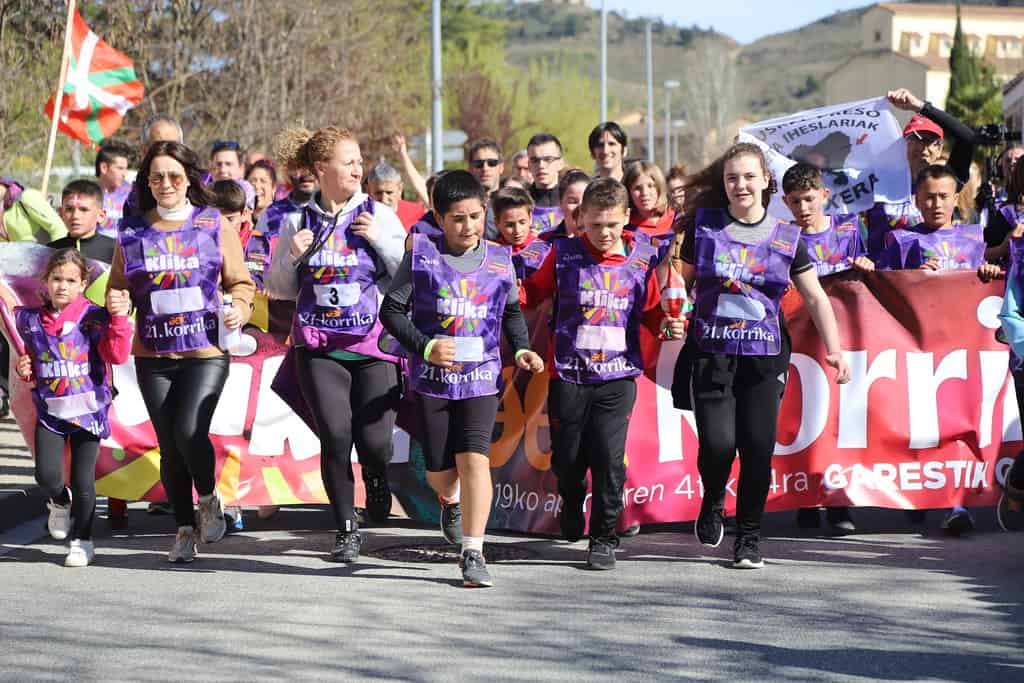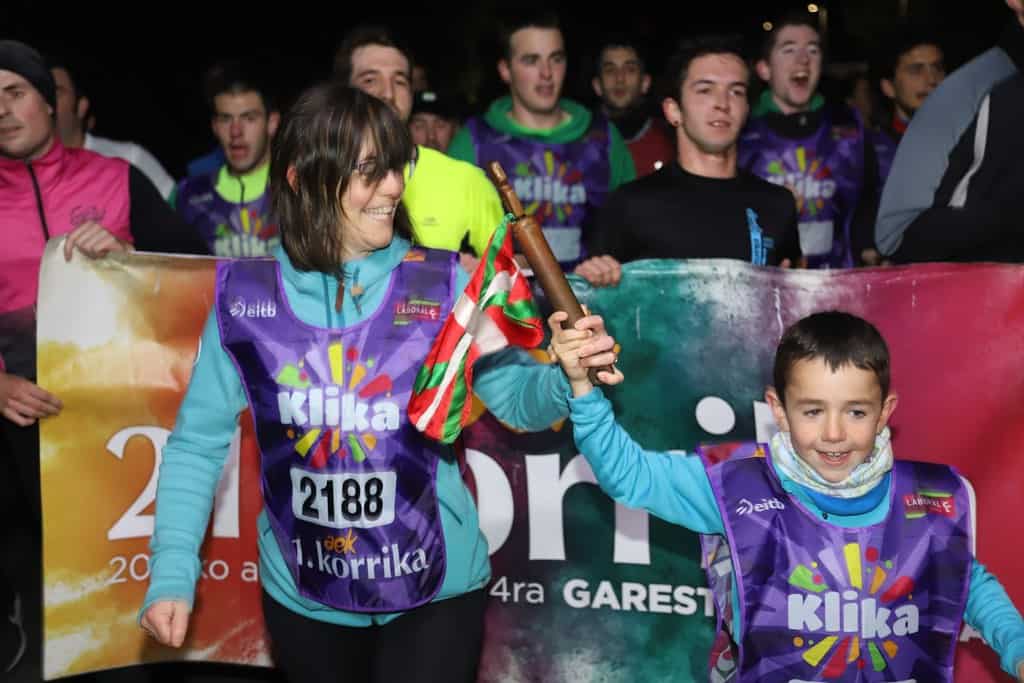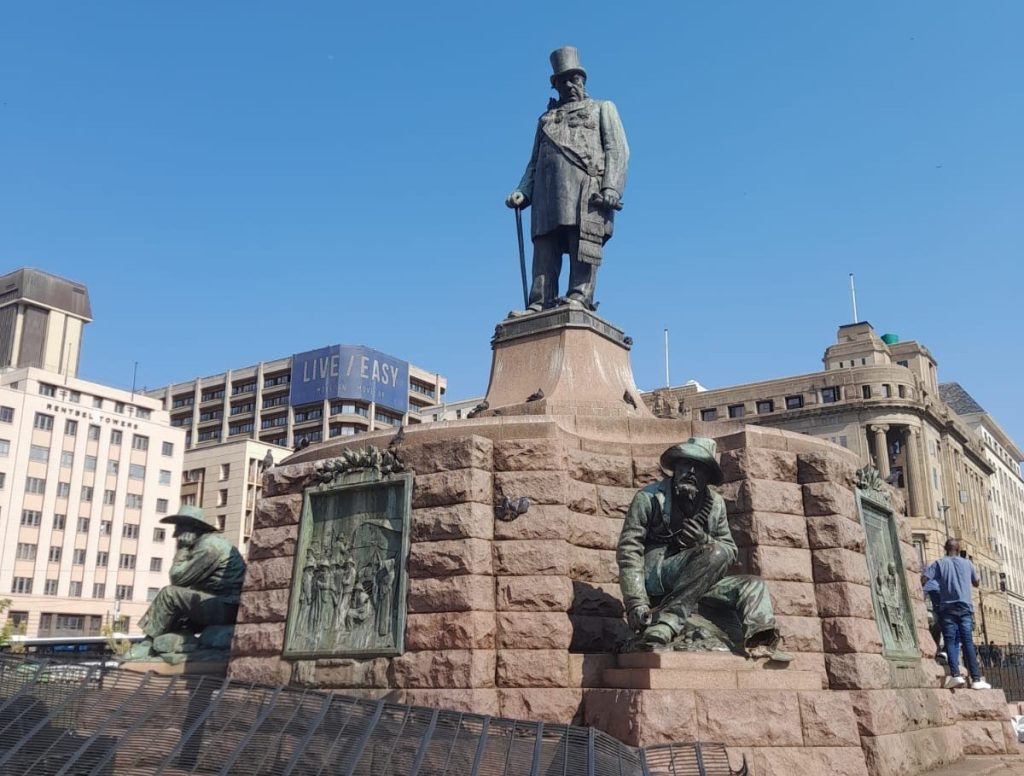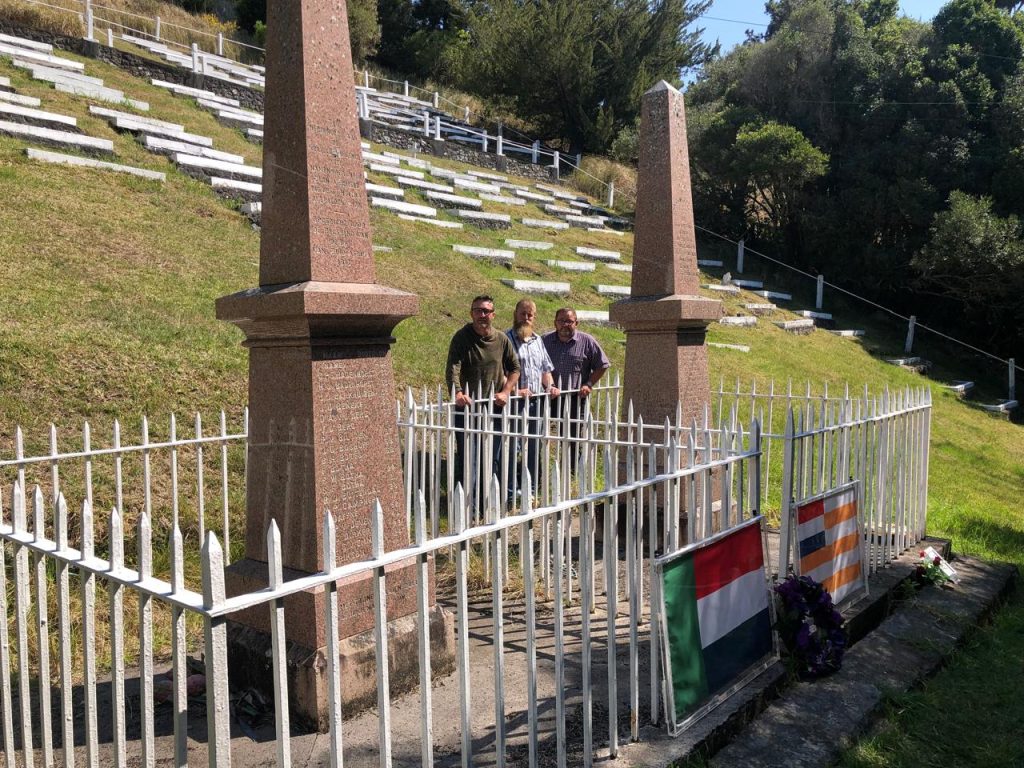AfriForum often calls on Afrikaans speakers to do something for their language – to sign a petition, support legal actions, buy Afrikaans products or to enrol their children in Afrikaans schools, to name a few. For energetic people who want to work more actively for our mother tongue, there are even more options.
For a few years, the Afrikaanse Taalraad sponsored road races. In Centurion, you could take part in a race with all kinds of exciting proverbs along the route. In the Western Cape there once was a race through the vineyards where contestants wore a favourite word instead of a number.
Even more inspiring is the Basques’ Korrika, a biennial road relay race with the sole purpose of promoting the Basque language. The Basque are native to Spain. They inhabit a region that stretches from the western tip of the Pyrenees at the Bay of Biscay across Northern and Central Spain to the southwest of France. About 2,4 million Basques live in Spain and 240 000 in France. Their language, Basque, is also known as Euskara and they call their country Euskal Herria, which means ‘country of the Basque language’ or Basque Country.
Basque is an ancient language that is not of Indo-Germanic origin like most European languages. Sometimes it is said to be the oldest language in Europe, but that may be a little exaggerated. The stereotyping of Basque as ‘the original language’ shows how proud the speakers are of their language and how strong they feel about it. About 30% of people in the region mentioned still use Basque as a home language, but they appreciate multilingualism and are usually also fluent in Spanish and/or French. Throughout the centuries, Basque has been suppressed by both Spanish and French governments, and although Unesco classifies it as an endangered language, it is still alive and developing.
The Basque language suffered much due to its suppression by General Franco of Spain (1936 to 1975). It was banned from schools at the time, and children who spoke Basque in classes or on the playground were severely punished. The police even gave adults who used the language in public a mouthful. People often suffered violence for using their mother tongue with the excuse that its use was detrimental to modernisation in Spain. After Franco fell from power, efforts began to restore and rebuild the language.
An organisation named AEK strives to teach adults Basque to revive the language. It is also used in schools again. Every two years, AEK organises the Korrika, a road relay race. Korrika is the Basque word for ‘run’. The purpose of the race is to promote the use of Basque and celebrate the Basque identity. The 22nd Korrika will take place in 2021. Volunteers in all towns and cities along the route that stretches through Basque Country cooperate to make a success of each Korrika.
It is the mother of all the relay races, continuing for eleven days, day and night, without interruption. About 600 000 people take part in the race that may stretch from 2 000 to more than 2 500 kilometres. A new route is followed each time, and an attempt is made to reach each part of Basque Country. Every year, the Korrika also has a new theme. In 2019 it was ‘klik’, which refers to a choice, a decision to learn the language.
The contestants carry a baton designed by a well-known Basque artist and decorated with the Basque flag. It contains a secret message that is only announced at the end of the race.
Part of 2019’s message reads as follows:
Klik means commitment. Klik is an option to choose.
Klik on Basque. Klik to learn it, to use it, to take the step.
Klik on community, on language, on culture.
Klik on the future, on a new era, on the Basque Country.
Klik on me, on you, on all of us.
Klik on the sweet taste of Basque, ikimilikiliklik!
Klik on music, dance in Basque.
Klik to nurture it, to help it grow, to commit yourself.
Klik on our option. Klik, AEK. Klik, Korrika.
[See http://www.korrika.eus/component/tags/tag/2]
Old and young, disabled and healthy, clubs, sports teams, circles of friends, schools, singles – everyone is welcome to participate in Korrika. Of course, they don’t need to participate for eleven days but may run as far as they want.
Korrika also offers a wonderful fundraising event for the AEK – businesses and individuals are invited to sponsor every kilometre of the race, and the proceeds are then used for the funding of Basque language schools for adults. Korrika stores sell merchandise with the brand name of the race to raise even more funds.
After 21 successful races, Korrika was established as one of the largest public demonstrations in favour of a specific language in the world. The race grabbed the imagination of the Basques to such an extent that foreign communities belonging to Basque clubs sometimes even offer concurrent events in their environments. Other language groups, including Catalan, Galician, Welsh and Irish, have since decided to tackle similar events.
Maybe one day Afrikaans will boast an established road race of our own. What do you say, AfriForum members?
Share on
Latest articles



